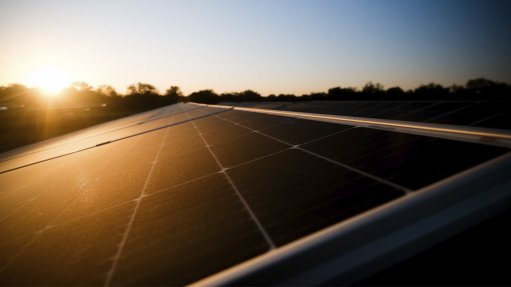Policy uncertainty edging further into negative territory ahead of elections, report shows
The North-West University (NWU) Business School Policy Uncertainty Index (PUI) veered further into negative territory in the first quarter, at 65.8 index points, compared with the 65.5 index points recorded for the fourth quarter of last year.
The PUI is published quarterly. An increase beyond 50 reflects heightened policy uncertainty, while a decline in the PUI means reduced uncertainty. The value of the PUI as a proxy for policy uncertainty is based on tracking changes in policy uncertainty over time.
NWU Business School says that, as expected, the uncertainty surrounding South Africa's upcoming election dynamics and the uncertainties regarding the outcomes in May are now exerting pressure on investors and the markets, contributing to fragile business confidence in the first quarter. The uncertain political landscape has prompted a cautious stance among investors and the markets.
The school notes that several factors have combined to raise the level of uncertainty surrounding the 2024 election outcomes.
The first is that, according to several recent authoritative opinion-based surveys, support for the African National Congress governing party is likely to dip below 50% nationally and provincially. This is partly because the political environment has become generally more competitive and volatile owing to new opposition formations.
Adding to the uncertainty is the fact that individual candidates may now participate in the proportional electoral system without belonging to a political party.
According to NWU Business School, current support patterns suggest a governance shift into coalition territory at both national and provincial levels, which has so far brought much unpredictability and instability to local government and metro politics.
Given these factors, political analysts and recent opinion surveys remain strongly divided on the likely election outcomes.
“It remains to be seen what governance solutions could emerge to deal with a likely shift in South Africa’s political economy. Although the economy will still nevertheless continue with its daily activities, political factors have now induced a tangible precautionary stance among investors and the markets,” the NWU Business School says.
During the first quarter, the South African economy continued to face familiar domestic and global challenges. Gross domestic product (GDP) growth is expected to be about 1% this year, following 0.6% last year, with the economic recovery showing uneven progress.
Household finances remain under strain, and surveys by Nedbank and Absa suggest recent trends in gross fixed capital formation (GFCF) have been weak. Nevertheless, Nedbank expects GFCF to pick up in 2025, driven by investment in renewable energy, stronger global growth and firmer commodity prices.
On March 27, the South African Reserve Bank's Monetary Policy Committee (MPC) once again decided to maintain borrowing costs unchanged for the time being, citing lingering inflation risks on the upside. However, interest rates appear to have reached their peak, and barring unforeseen shocks, rates could start to decrease in the latter half of 2024, the NWU Business School says.
The 2024/25 Budget reflects National Treasury's commitment to ward off a debt trap through a combination of spending decisions, debt management measures, and tax adjustments to achieve fiscal balance. The Budget speech acknowledged the ongoing challenge of high sovereign credit risk, which is expected to be addressed over the coming years.
The NWU Business School notes that several significant reform initiatives are already under way in key policy areas, such as energy, logistics, and transport, which could serve as crucial drivers for this year's growth prospects.
Although there is still much progress to be made, the NWU Business School says reports suggest that the government and Business for South Africa partnership in these priority sectors is gaining sustainable momentum.
GLOBAL
Meanwhile, the International Monetary Fund’s (IMF's) forecast for global economic growth at 3.2% this year is slightly higher than its October 2023 expectation. The IMF still observes significant divergences between regions and countries. Like the IMF, the World Economic Forum also observed that regional growth varied widely, and that no region was expected to show very strong growth this year.
This is particularly noticeable among the major players in the global economy, being the US, the European Union and China, which are currently exhibiting varying economic performances.
Global inflation is expected to continue easing this year, although core inflation in some economies is declining at a slower pace, with implications for the potential easing of interest rates.
Geopolitical risks and uncertainties, well-known and persistent, continued to affect the economic and political landscape. Among these are the upcoming US Presidential elections in November.
“Analysts worry . . . that especially where closely run elections are anticipated and the electorate is highly polarised, there could be unpredictable consequences for geopolitics, trade and investment in present volatile global circumstances,” the NWU Business School says.
Additionally, in the first two months of 2024, disruptions in Red Sea shipping have led to a 50% drop in Suez Canal trade compared with a year earlier, while trade through the Panama Canal fell by 32%, causing disruptions in supply chains and affecting macroeconomic indicators.
The World Bank projects GDP growth in sub-Saharan Africa to accelerate to 3.8% this year, firming to 4.1% next year. However, growth in the largest economies in the region, such as Nigeria and South Africa, is expected to lag behind the rest of the region. The World Bank also highlights well-known downside risks for sub-Saharan Africa.
Article Enquiry
Email Article
Save Article
Feedback
To advertise email advertising@creamermedia.co.za or click here
Comments
Press Office
Announcements
What's On
Subscribe to improve your user experience...
Option 1 (equivalent of R125 a month):
Receive a weekly copy of Creamer Media's Engineering News & Mining Weekly magazine
(print copy for those in South Africa and e-magazine for those outside of South Africa)
Receive daily email newsletters
Access to full search results
Access archive of magazine back copies
Access to Projects in Progress
Access to ONE Research Report of your choice in PDF format
Option 2 (equivalent of R375 a month):
All benefits from Option 1
PLUS
Access to Creamer Media's Research Channel Africa for ALL Research Reports, in PDF format, on various industrial and mining sectors
including Electricity; Water; Energy Transition; Hydrogen; Roads, Rail and Ports; Coal; Gold; Platinum; Battery Metals; etc.
Already a subscriber?
Forgotten your password?
Receive weekly copy of Creamer Media's Engineering News & Mining Weekly magazine (print copy for those in South Africa and e-magazine for those outside of South Africa)
➕
Recieve daily email newsletters
➕
Access to full search results
➕
Access archive of magazine back copies
➕
Access to Projects in Progress
➕
Access to ONE Research Report of your choice in PDF format
RESEARCH CHANNEL AFRICA
R4500 (equivalent of R375 a month)
SUBSCRIBEAll benefits from Option 1
➕
Access to Creamer Media's Research Channel Africa for ALL Research Reports on various industrial and mining sectors, in PDF format, including on:
Electricity
➕
Water
➕
Energy Transition
➕
Hydrogen
➕
Roads, Rail and Ports
➕
Coal
➕
Gold
➕
Platinum
➕
Battery Metals
➕
etc.
Receive all benefits from Option 1 or Option 2 delivered to numerous people at your company
➕
Multiple User names and Passwords for simultaneous log-ins
➕
Intranet integration access to all in your organisation


















